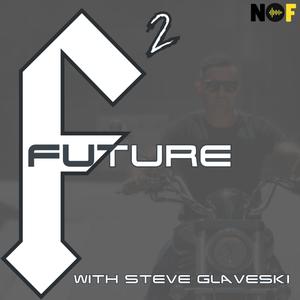
Future Squared with Steve Glaveski - Helping You Navigate a Brave New World
Steve Glaveski
Future Squared is a podcast all about helping people think in a multi-disciplinary way, make better decisions and better navigate what is fast becoming a Huxleyian Brave New World.
- 1 hour 20 seconds441. From CEO of ASX-listed company to Bus Driver with Nic Jones
In this thought-provoking episode, we sit down with Nic Jones, a former executive who made the bold decision to step away from a high-powered career in media to drive buses.
Jones, whose past roles spanned influential positions at Moshcam, Pureprofile, Nine, Yahoo, News Corp, Publisis, and Vevo, shares the experiences and reflections that led him to question the corporate world’s relentless pursuit of more.
Together, we unpack the value of living in alignment with one’s true nature versus society’s definition of success, inspired by a famous Seneca quote: "Live according to nature and never be poor; live according to opinion and never be rich."
Key Discussion Points:
- Background and Big Decisions: We explore Nic’s previous life, filled with executive roles and startup ventures, including his time as CEO of Pureprofile and his contributions to projects like Vera, a platform supporting people with dementia. Nic reflects on what happened with some of these companies and what ultimately influenced his choice to take a step back.
- Pursuing Purpose Over Prestige: Why does society prize "chasing more" even if it costs us our happiness? Nic reflects on how this constant drive often leads to personal sacrifices and explores why he chose to reject that path in favor of simpler living.
- Identity & Letting Go of the “Golden Handcuffs”: How did Nic break free from the identity and financial security associated with his high-level roles? He discusses the challenges of leaving a successful career, the concept of “golden handcuffs,” and how he managed the financial and personal implications of this shift.
- Privilege and Perception: Nic addresses the perspective that leaving a well-paying job is a choice only available to a few. He openly talks about privilege and explains why, for him, this was not an impulsive decision but rather one carefully navigated.
- The Role of Social Circles & Intellectual Stimulation: How has Nic’s social life changed since transitioning to a new career? Nic shares how this choice impacted his relationships with friends, especially those in professional circles.
- Reflections on Happiness and Meaning in the Age of Screens: Nic reflects on the crisis of meaning and community in a world dominated by screens, discussing how bus driving and working with people daily bring him a new sense of observable meaning.
- Relationship with Money: Has Nic’s relationship with money changed since he walked away from his high-income job? We examine the evolution of his financial values, including the notion of "enough," and how that influences his current approach to life.
Show Notes
Connect with Nic on LinkedIn: https://www.linkedin.com/in/nic99jones/
Connect with Steve
Follow me on Twitter: https://twitter.com/steveglaveski
Follow me on Instagram: https://instagram/thesteveglaveski
Subscribe to my newsletter: https://futuresquared.xyz
Future Squared YouTube: https://www.youtube.com/@futuresquaredpod
Listen to Future Squared on Spotify & Apple Podcasts
Hosted on Acast. See acast.com/privacy for more information.
30 October 2024, 2:30 am - 54 minutes 25 seconds440. How to Apply Lean Startup at Large Organizations with Lean Startup Co CEO, Ben Hafele
Introduction:
In this episode, we dive into the world of Lean Startup, 13 years on from its inception, and explore the challenges and nuances of applying it within large corporations.
While Lean Startup principles are widely taught, executing them in established corporate environments often leads to failure. Our guest, Ben Hafele from Lean Startup Corp, shares his firsthand insights on why this happens and how leaders can overcome these challenges to foster innovation within their organizations.
Key Topics Covered:
- A quick recap of the Lean Startup methodology, focusing on rapid experimentation, validated learning, and customer feedback loops. Why is it still relevant today, and how does it differ from traditional corporate processes?
- Teaching the Lean Startup approach is one thing, but applying it in a corporate setting is an entirely different challenge. Why does it often fail in large organizations, and what can leaders do to make it successful?
- Process blockers: How existing systems and bureaucratic hurdles slow down the Lean process.
- People blockers and cultural dynamics: Exploring the resistance to change, risk aversion, and the "not a startup" mindset common in corporate environments.
- Navigating stakeholder interests: In large organizations, aligning various stakeholders with differing priorities can be a significant hurdle. Ben shares tips for getting everyone on board.
- Lean Startup is at risk when it doesn't produce immediate wins or when a key sponsor exits (e.g., the shift in focus at GE after Jeff Immelt's departure). How can organizations safeguard against this?
- Lean Startup's emphasis on rapid experimentation often clashes with the slow-moving approval processes in big companies. How can corporations adapt, and what structural changes are necessary to allow for cross-functional, agile teams?
- Ben discusses how breaking down silos and empowering cross-functional teams is essential for Lean Startup success, and why the phrase "we’re not a startup" needs to be reframed to align with corporate goals like cutting costs, improving NPS, and avoiding past failures.
- Large corporations are often risk-averse and bound by strict governance. How can Lean Startup models align with these realities, and how do organizations deal with basic barriers like permission to use the right tools?
- Enterprises are used to long-term planning and predictable outcomes. How can leaders balance these with Lean Startup's iterative, experiment-driven approach without losing sight of core business goals?
- Ben explores how the VC-inspired approach of staged funding, lots of small bets, and measuring innovation metrics instead of pure ROI can drive corporate innovation.
- Corporate cultures aren’t always built for the speed and ownership required by Lean Startup. Slow decision-making and the need for consensus can stifle progress. What cultural shifts are necessary to make this work?
- Corporate inertia and resistance to change are notorious in large organizations. How can Lean Startup help break through these barriers to create meaningful, lasting innovation?
- Ben discusses the pros and cons of externalizing innovation through Lean Startup teams, innovation outposts, or whether it’s better to invest in startups directly through corporate venture capital (CVC).
Show Notes:
Ben on Linkedin: https://www.linkedin.com/in/ben-hafele
Lean Startup Co: https://leanstartup.co
Lean AI Podcast: https://www.youtube.com/playlist?list=PL1M9pu1POlen6tXqJCqt_Y-YVBAtygiRp
Hosted on Acast. See acast.com/privacy for more information.
22 October 2024, 11:25 pm - 1 hour 6 minutes439. The Today and Tomorrow of AI with VC & UBER's former Head of Data Science, Kevin Novak
Kevin Novak is the Founder of Rackhouse Venture Capital, a global venture capital firm purpose-built to support early-stage founders and firms at the intersection of AI/ML and the real world. Previously, he served as Uber’s first Head of Data Science, its first Head of Data Science Platform, and invented its surge pricing model.
We covered a lot of topics, including:
- Kevin's time at UBER
- The mechanics of investing in startups
- The proliferation of deep fakes and what it means for the world
- Why we’re still so early when it comes to GenAI
- Whether AI advertising models will destroy Google search
- How AI content licensing might work to reward not just large but independent creators
- Kevin’s prediction on which year the world’s first one-person unicorn will emerge
Show Notes
Email Kevin: [email protected]
Rackhouse Ventures: rackhouse.vc
Kevin on X: @novakkm
Connect with Steve
Follow me on Twitter: https://twitter.com/steveglaveski
Follow me on Instagram: https://instagram/thesteveglaveski
Subscribe to my newsletter: https://futuresquared.xyz
Future Squared YouTube: https://www.youtube.com/@futuresquaredpod
Listen to Future Squared on Spotify & Apple Podcasts
Hosted on Acast. See acast.com/privacy for more information.
18 September 2024, 12:59 am - 2 hours 6 minutesRebroadcast: Steve Hughes on Woke Ideology, Standup Comedy, Depression and more... (most popular F2 episode of all time!)
Steve Hughes is an internationally renowned stand up comedian who tells it like it is, refusing to shy away from the confonting and what is often interpreted as controversial.
Steve is incredibly observant, bringing with him worldly insights into the bleeding obvious and comes armed with what he says is more issues than an Occupy movement.
Steve spent the first half of his career as a heavy metal drummer for bands such as Mortal Sin before burning up the international comedy circuit, which he has been doing for more than 12 years now, having toured throughout Europe, Australia, USA, Canada & New Zealand to rave reviews and mutinous laughter.
However, don’t be fooled, this conversation goes way beyond the realm of just comedy and heavy metal and we spend the majority of the two hours exploring topics such as political correctness and identity politics, Steve’s battle with depression, free will, the suppression of freedom of speech, preference falsification, feminism, disidentification with ego, leaning into adversity and bombing onstage, the state of the music industry, drugs, technology addiction, participation trophies and much much more.
A word of warning, this podcast is not safe for work, and is not for the faint at heart.
With that, let’s kick off my two hour deep dive with the inimitable Steve Hughes.
Note: This podcast episode is NSFW.
Topics Discussed:
- Political correctness
- Identity politics
- Steve’s battle with depression
- Free will
- The suppression of freedom of speech
- Preference falsification
- Disidentification with ego
- Leaning into adversity
- Bombing on stage
- The state of the music industry
- Australia’s tall poppy syndrome
- Beware of people bearing absolutes
- Legislating feelings
- Why the crowd is your barometer
- Leading with your heart
- Buddhism and non-dualism
- Drugs
- Taking ownership and victim mentalities
- Why being offended is a choice
- Living with Jim Jefferies
- Technology addiction
- Participation trophies
- Colonial regulations and Conservatism in Australia
- Steve’s views on general practitioners
- Steve’s early days on the metal scene
- Steve’s early days on the comedy circuit
Show Notes:
Steve’s website: www.SteveHughes.net.au
Hosted on Acast. See acast.com/privacy for more information.
24 July 2024, 8:39 am - 57 minutes 55 seconds438. Investing in the next Mr Beast, Joe Rogan, or PewDiePie with Crowdsurf's Preston Troutt
My guest today is Preston Troutt, the founder of the innovative crowdfunding platform, Crowdsurf.
Preston is a dynamic entrepreneur aiming to transform how we invest in creators, turning the conventional investor model on its head.
In this episode, we'll explore how Crowdsurf allows fans and followers to invest directly in their favorite creators, the origin of this groundbreaking idea, and how the model works.
We'll dive into the platform's progress, the types of creators raising funds, and share some success stories.
Preston will also discuss transparency for investors, including income tracking and investor protections.
We'll tackle some challenges creators face in monetizing their content, and discuss how Crowdsurf addresses these issues. Plus, we'll cover who can invest, the minimum investment required, and the criteria used to select creators.
Furthermore, Preston will shed light on navigating the regulatory landscape with SEC and FINRA compliance, managing investment risks, and supporting creators to ensure long-term growth.
We'll also explore the distribution of revenue to investors and Preston's vision for the future of Crowdsurf and the creator economy's impact on traditional industries.
Show Notes
Crowdsurf: https://crowdsurf.xyz
Connect with Steve
Follow me on Twitter: https://twitter.com/steveglaveski
Follow me on Instagram: https://instagram/thesteveglaveski
Subscribe to my newsletter: https://futuresquared.xyz
Future Squared YouTube: https://www.youtube.com/@futuresquaredpod
Listen to Future Squared on Spotify & Apple Podcasts
Hosted on Acast. See acast.com/privacy for more information.
18 July 2024, 9:15 pm - 1 hour 6 minutes437. The Ozempic Episode with Lucas Aoun - Benefits and Risks of the Wonder Weight Loss Drug
Today, we’re diving into the fascinating and complex world of modern weight loss with Lucas Aoun, an expert in health and performance.
In 1980, 15% of Americans were obese; today, it's 42%, with over 70% either overweight or obese. England has seen similar trends.
We’ll explore why this epidemic has escalated, focusing on the role of the modern food supply, historical influences like the sugar industry’s impact, and groundbreaking treatments such as Ozempic.
What is Ozempic, and how does it work?
We'll delve into its benefits, risks, and the societal implications of widespread use.
Join us as we discuss the future of weight management, balancing pharmaceutical solutions with lifestyle changes, and learning from cultures with low obesity rates. We also look at the body positivity movement, and ask whether it's doing more harm than good.
Timestamps
(0:02) - Lucas' return to the show, comparison with Tim Harford.
(0:07) - Introduction to obesity statistics and the rise in obesity rates.
(0:12) - Causes of obesity: sedentary behaviors, poor diet, social media, and rise of obesity medications.
(0:17) - Discussion on the impact of big food and misleading health ratings.
(0:22) - Specific examples of food ratings and misconceptions.
(0:27) - Transition to discussion on Ozempic and its effects.
(0:32) - Overview of Ozempic, its mechanism, and its impact on appetite.
(0:37) - Benefits and risks of Ozempic, including muscle loss.
(0:42) - Psychological and societal implications of weight loss drugs.
(0:47) - Dependency on weight loss drugs and long-term effects.
(0:52) - Alternative methods to mimic Ozempic’s effects naturally.
(0:57) - Lessons from Japanese diet and lifestyle for managing weight.
(1:02) - Importance of eating habits and mindful eating.
(1:07) - Closing remarks, Lucas' additional resources, and future conversations.
Show Notes:
Website: www.boostyourbiology.com
Testosterone course: www.trtfree.com
BYB YouTube: https://www.youtube.com/c/BoostYourBiology
Connect with Steve
Follow me on Twitter: https://twitter.com/steveglaveski
Follow me on Instagram: https://instagram/thesteveglaveski
Subscribe to my newsletter: https://futuresquared.xyz
Future Squared YouTube: https://www.youtube.com/@futuresquaredpod
Listen to Future Squared on Spotify & Apple Podcasts
Hosted on Acast. See acast.com/privacy for more information.
16 July 2024, 3:41 am - 51 minutes 26 seconds436. Scaling a Skincare Brand to 200,000 Customers in 4 Years with Hey Bud's Alex Roslaniec
My guest today is Alex Roslaniec, hes a co-founder of fast-growing skincare company, Hey Bud.
Hey Bud was founded just 4.5 years ago, and is today available in 130 countries, boasts 200,000 customers, and is stocked in 400 Priceline stores across Australia.
We discussed:
- How Hey Bud differentiated itself in a saturated cosmetics and skincare market
- The power of online reviews
- The role of influencer marketing
- How being beholden to algorithms and pay-per-click ads can be the undoing of a business
- How Hey Bud got a distribution deal with Priceline, marking its move from online into physical retail
- The perils of manufacturing
- The regulatory landscape for hemp-based products
- How to hire great talent
And so much more.
There are so many actionable tips in this one for anyone building a business so strap yourself in for my conversation with the one and only, Alex Roslaniec.
Resources and Links
- Hey Bud Skincare: https://heybudskincare.com (get 15% off with FUTURESQUARED15)
- The Great CEO Within book: https://www.amazon.com.au/Great-CEO-Within-Tactical-Building-ebook/dp/B07ZLGQZYC
Connect with Us
- Follow me on Twitter: https://www.twitter.com/steveglaveski
- Follow me on Instagram: https://instagram.com/thesteveglaveski
- Subscribe to my newsletter: https://futuresquared.xyz
Timestamps
(00:02) - Intro
(05:02) - Hey Bud's unique positioning in the skincare market and initial growth strategies.
(10:02) - Key milestones and growth metrics, including expanding to 130 countries and gaining 200,000 customers.
(15:02) - Origin story and personal journey of Alex and his co-founders, including challenges faced as first-time founders.
(20:02) - Strategies for differentiating Hey Bud in a saturated market, focusing on online reviews and customer feedback.
(25:02) - Importance of influencer marketing and the role it played in Hey Bud's early success.
(30:02) - Manufacturing challenges and the complexities of scaling production.
(35:02) - Regulatory landscape for hemp-based products and navigating legal requirements.
(40:02) - Team dynamics, hiring strategies, and maintaining a lean but effective team.
(45:02) - Long-term vision for Hey Bud, including expansion plans and future opportunities.
(50:02) - Wrap-up and final thoughts from Alex on the future of Hey Bud and personal reflections.
Hosted on Acast. See acast.com/privacy for more information.
9 July 2024, 7:05 am - 1 hour 1 minuteRebroadcast: 37Signals' Jason Fried on Why Work Doesn't Have To Suck
Jason Fried thinks deeply about collaboration, productivity and the nature of work. He's the co-founder of project management platform Basecamp. Founded in 1999, Basecamp has been recognised by Forbes as one of America’s best small businesses. His 2010 TED talk on ‘Why Work Doesn’t Happen At Work’ has been viewed over 5 million times.
He’s also the co-author of Rework, which is about new ways to conceptualize working and creating, as well as the brand new ‘It Doesn’t Have To Be Crazy At Work’, in which he rejects the prevailing notion that long hours, aggressive hustle, and "whatever it takes" are required to run a successful business today. The Economist called the book funny, well-written and iconoclastic and by far the best thing on management published this year.
As somebody who shares many of Jason’s philosophies on work, I really enjoyed this conversation. Organisations are projected to invest US$2T into digital transformation by 2022 to make them more efficient, but they could reap what I would argue are vastly greater rewards, not only in terms of productivity but in terms of employee wellness, if they just changed the way they work today.
Jason and I unpacked many lessons on productivity from his book, including:
- Why is everybody ‘so, so busy’?
- Why more people doesn’t mean faster or better outcomes; and
- A handful of simple changes that you can make today to radically increase your productivity and enjoyment of work and life
Topics Discussed:
- Why being busy has become a badge of honour
- The dangers of not getting enough sleep
- The peril of managers and meetings
- Brook’s Law
- Why 80 hour work weeks aren’t spent actually working
- Facilitating outcomes with a remotely distributed team
- Jason’s notion of a ‘calm company’
- Why Basecamp has rejected hundreds of offers from venture capitalists and investors
- Why raising capital shouldn’t be conflated with success for startups
- Setting realistic deadlines
- So-called perks that are designed to keep people in the office
- How to defend your time
- Commitment, not consensus
- Using work as an excuse not to live
- Overcollaboration in the workplace
- Outsourcing accountability and blame
- How to say no
- Jason’s rituals and routines
Show Notes:
- Basecamp.com (project and team communications software)
- Get the book: https://www.amazon.com/Doesnt-Have-Be-Crazy-Work/dp/0062874780
- Twitter: @jasonfried
- Medium: @jasonfried
- Jason’s TED Talk: https://www.ted.com/talks/jason_fried_why_work_doesn_t_happen_at_work?language=en
---
Employee to Entrepreneur podcast on Apple Podcasts: bit.ly/employeetoentrepreneurpodcast
Listen to Future Squared on Apple Podcasts @ goo.gl/sMnEa0
Also available on: Spotify, Google Podcasts, TuneIn, Stitcher and Soundcloud
Twitter: www.twitter.com/steveglaveski
Instagram: www.instagram.com/@thesteveglaveski
Future Squared: www.futuresquared.xyz
Steve Glaveski: www.steveglaveski.com
Medium: www.medium.com/@steveglaveski
Hosted on Acast. See acast.com/privacy for more information.
5 July 2024, 2:43 am - 56 minutes 42 seconds435. How to Raise Venture Capital in 2024: Valuations, AI, Diversity & more with Julia Krieger
Julia Krieger is the managing partner of Pari Passu Venture Partners, a network of founders supporting founders. She has been both an operator and a venture investor and so has unique perspectives on all things startups and VCs.
In this conversation, we explore:
- Julia’s time investing over $100M for Insight Partners
- Her experience building sharing economy marketplace, VillageLuxe
- How Pari Passu invests on an SPV model instead of a fund model, and the benefits of this
- Operator-led VC firms v non-operator led VC firms and their respective merits
- Where the venture landscape and valuations are at today
- The impact of AI on capital efficiency
- Warm v cold outreach
- Tips for founders looking to raise
- How going through difficult times breeds empathy
- We also touched on Scale AI’s meritocratic-based hiring process and how Julia thinks about backing diverse founders
Timestamps
(00:02) - Discussion about balancing work and family, and the start of the podcast conversation.
(00:07) - Reflection on investing over $100 million in Marketplace and SAS companies, and insights into the Russian tech ecosystem in the early 2010s.
(00:12) - Detailed discussion about the operational model and cultural philosophy at Insight Partners.
(00:17) - Transition from Insight Partners to founding Village Lux, and the challenges faced during the COVID-19 pandemic.
(00:22) - Discussion on the lessons learned from running Village Lux and transitioning to founding Pari Passu Ventures.
(00:27) - Details on the setup of Paripasu Ventures and its unique investment approach through an SPV model.
(00:32) - Discussion about the current venture capital environment, the importance of resilience in founders, and the impact of economic cycles on startup funding.
(00:37) - Insights into how founders are adapting to the current economic environment and strategies for longer runway and fundraising.
(00:42) - The philosophical and operational approach of Pari Passu Ventures, and the significance of supporting diverse founders.
(00:47) - Concluding remarks and final thoughts on the future of startups, AI influence on business, and the importance of diverse and merit-based funding approaches.
Resources and Links
- Pari Passu Venture Partners: https://ppvp.com
- Julia's LinkedIn: https://www.linkedin.com/in/yuliyagudish/
- Pari Passu community app: https://apps.apple.com/us/app/paripassu-invest-with-top-vcs/id6451420779
Connect with Us
- Follow me on Twitter: https://www.twitter.com/steveglaveski
- Follow me on Instagram: https://instagram.com/thesteveglaveski
- Subscribe to my newsletter: https://futuresquared.xyz
Our Sponsor
- Get your free content strategy: https://sonicboom.vc
Leave us a review!
Timestamps
Hosted on Acast. See acast.com/privacy for more information.
26 June 2024, 2:56 am - 1 hour 2 minutes434. Why Australia will NEVER be Silicon Valley with Chris Saad
My guest today is Chris Saad, he’s a seasoned product and startup builder, co-host of The Startup Podcast, and former Head of Product at Uber's Developer Platform.
He’s been at the forefront of building companies since graduating high school the turn of the millennium, and has spent considerable time in both Australia’s and the United State’s tech and startup ecosystems, giving him a unique perspective on the differences between the two.
We discussed:
- the apparent catch 22 of Australia’s social safety net
- the difference in mindset between American and Australian founders
- the underlying geographic, political, and economic realities
- why Australia’s investment ecosystem is unsophisticated
- Chris’ provocative thought son social justice activism amongst startup ecosystems
- regulatory and tax landscapes
- and so much more
Resources and Links
- The Startup Podcast: https://tsp.show
- Chris Saad's website: https://www.chrissaad.com
Connect with Us
- Follow me on Twitter: https://www.twitter.com/steveglaveski
- Follow me on Instagram: https://instagram.com/thesteveglaveski
- Subscribe to my newsletter: https://futuresquared.xyz
Our Sponsor
- Get your free content strategy: https://sonicboom.vc
Leave us a review!
Timestamps
(03:00) - Contrast between California's wealth and homelessness
(05:00) - Adjusting audio settings and reconnecting with Chris Saad
(07:00) - Viral LinkedIn post about Australia's startup ecosystem
(09:00) - Reactions to the LinkedIn post
(12:00) - Comparing entrepreneurial ecosystems of Australia and US
(15:00) - Impact of social safety nets on entrepreneurial spirit
(17:00) - Differences in urgency and hustle culture
(19:00) - Historical and cultural factors in Australian attitudes
(20:00) - Statistics on unicorns per capita
(23:00) - Characteristics of US vs. Australian entrepreneurs
(25:00) - Scarcity vs. abundance mindset
(27:00) - Challenges in the Australian startup ecosystem
(29:00) - Importance of talent density
(31:00) - Changes in Australian startup ecosystem
(33:00) - Networking in Silicon Valley vs. Melbourne
(35:00) - Value of Silicon Valley-based clients
(37:00) - Impact of regulation on startups
(39:00) - Tax and regulation differences between US and Australia
(41:00) - Regulatory capture and its impact on startups
(43:00) - Differences in divorce law between US and Australia
(45:00) - Challenges in promoting fintech startups in Australia
(47:00) - Sophistication of Australian investors
(49:00) - Investor mindset and startup economics
(51:00) - Rational exuberance in US investments
(53:00) - Importance of early-stage startup enthusiasm
(55:00) - Misunderstanding of startup risk in Australia
(57:00) - Universal truths in startup success
(59:00) - Social justice and its impact on startups
(1:01:00) - Finding balance in social justice efforts
(1:03:00) - Conclusion and where to find more of Chris Saad
Hosted on Acast. See acast.com/privacy for more information.
18 June 2024, 2:50 am - 1 hour 8 minutesRebroadcast: Robert Greene on the 48 Laws of Power
This man needs no introduction but I’m going to give him one anyway.
Robert Greene is the author of the New York Times bestsellers The 48 Laws of Power, The Art of Seduction, The 33 Strategies of War, The 50th Law and Mastery.
His highly anticipated sixth book, The Laws of Human Nature, explores people's drives and motivations, even when they are unconscious of them themselves. Knowing why people do what they do is the most important tool we can possess, without which our other talents can only take us so far.
Having read hundreds of business books myself, perhaps the books that have had the most profound positive impact on how I show up each day and how I conduct myself are books on psychology, behavioural economics, neuroscience and biological evolution. Books that ultimately helped me to understand myself and understand others. As such, I was really excited to read the Laws of Nature and speak with Greene about what is such a fundamental topic.
In addition to having a strong following within the business world and a deep following in Washington, DC, Greene's books are hailed by everyone from war historians to the biggest musicians in the industry (including Jay-Z and 50 Cent).
Expect to learn a ton from this conversation, but in particular, three key take-aways:
1) How having an estimated 80 jobs before becoming an author shaped Greene’s world view and made him a better and more creative writer
2) Why it is our moments of frustration where we often seek out life-changing answers
3) How Greene seeks the path of what is ‘most right’ by looking at questions from multiple angles and contemplating many alternatives
This just scratches the surface of the many enlightening things we discussed - just peek at the topics discussed in the show notes to get a feel for everything discussed - so with that, it gives me much pleasure to present you with one of the most pre-eminent authors of our time, the one and only, Robert Greene.
Show Notes:
1. The Blog of Robert Greene: www.powerseductionandwar.com
2. Twitter: @RobertGreene
3. Greene’s Books: https://www.amazon.com/Robert-Greene/e/B001IGV3IS
4. The Laws of Human Nature Book: https://www.amazon.com/Laws-Human-Nature-Robert-Greene/dp/0525428143
Connect with Us
- Follow me on Twitter: https://www.twitter.com/steveglaveski
- Follow me on Instagram: https://instagram.com/thesteveglaveski
- Subscribe to my newsletter: https://futuresquared.xyz
Our Sponsor
- Get your free content strategy: https://sonicboom.vc
Leave us a review!
If you enjoyed this episode, please leave us a review and share it with your friends.
Hosted on Acast. See acast.com/privacy for more information.
12 June 2024, 1:54 am - More Episodes? Get the App
Your feedback is valuable to us. Should you encounter any bugs, glitches, lack of functionality or other problems, please email us on [email protected] or join Moon.FM Telegram Group where you can talk directly to the dev team who are happy to answer any queries.
 Business Model Sandbox
Business Model Sandbox
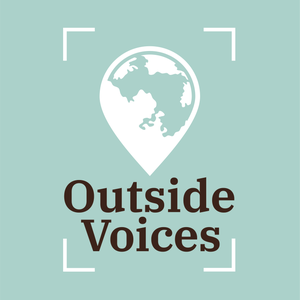 OutsideVoices with Mark Bidwell
OutsideVoices with Mark Bidwell
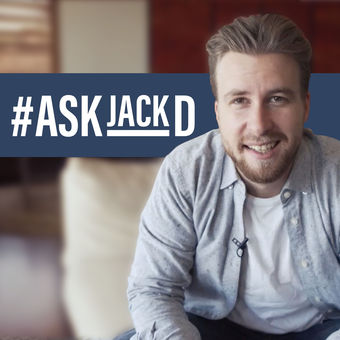 #AskJackD
#AskJackD
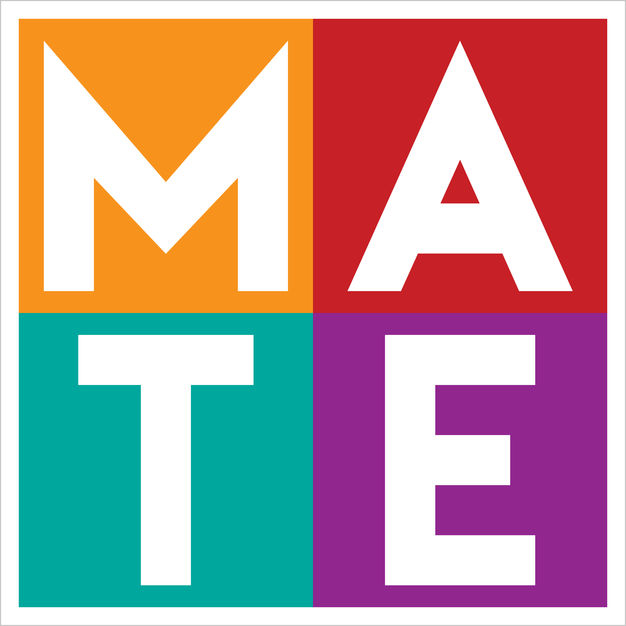 MATE: Marketing, Advertising, Technology and Entrepreneurship
MATE: Marketing, Advertising, Technology and Entrepreneurship
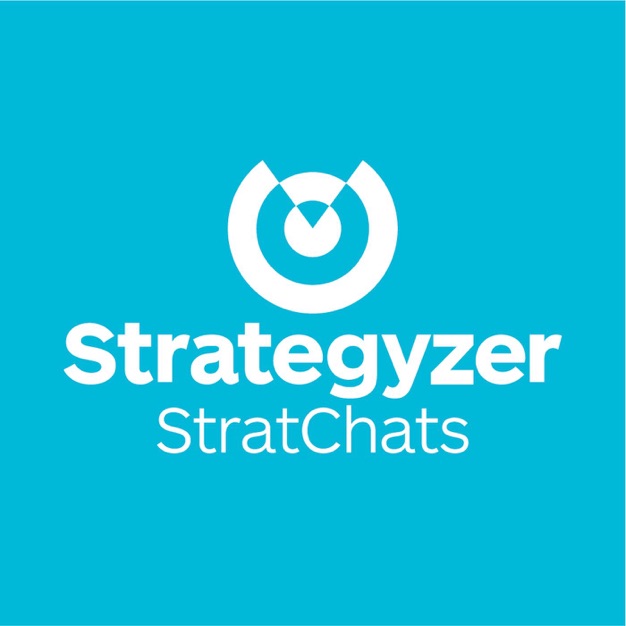 StratChats by Strategyzer
StratChats by Strategyzer
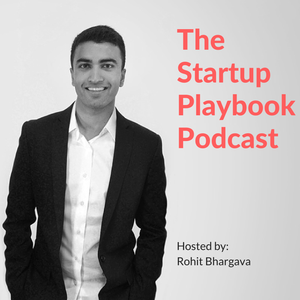 The Startup Playbook Podcast
The Startup Playbook Podcast